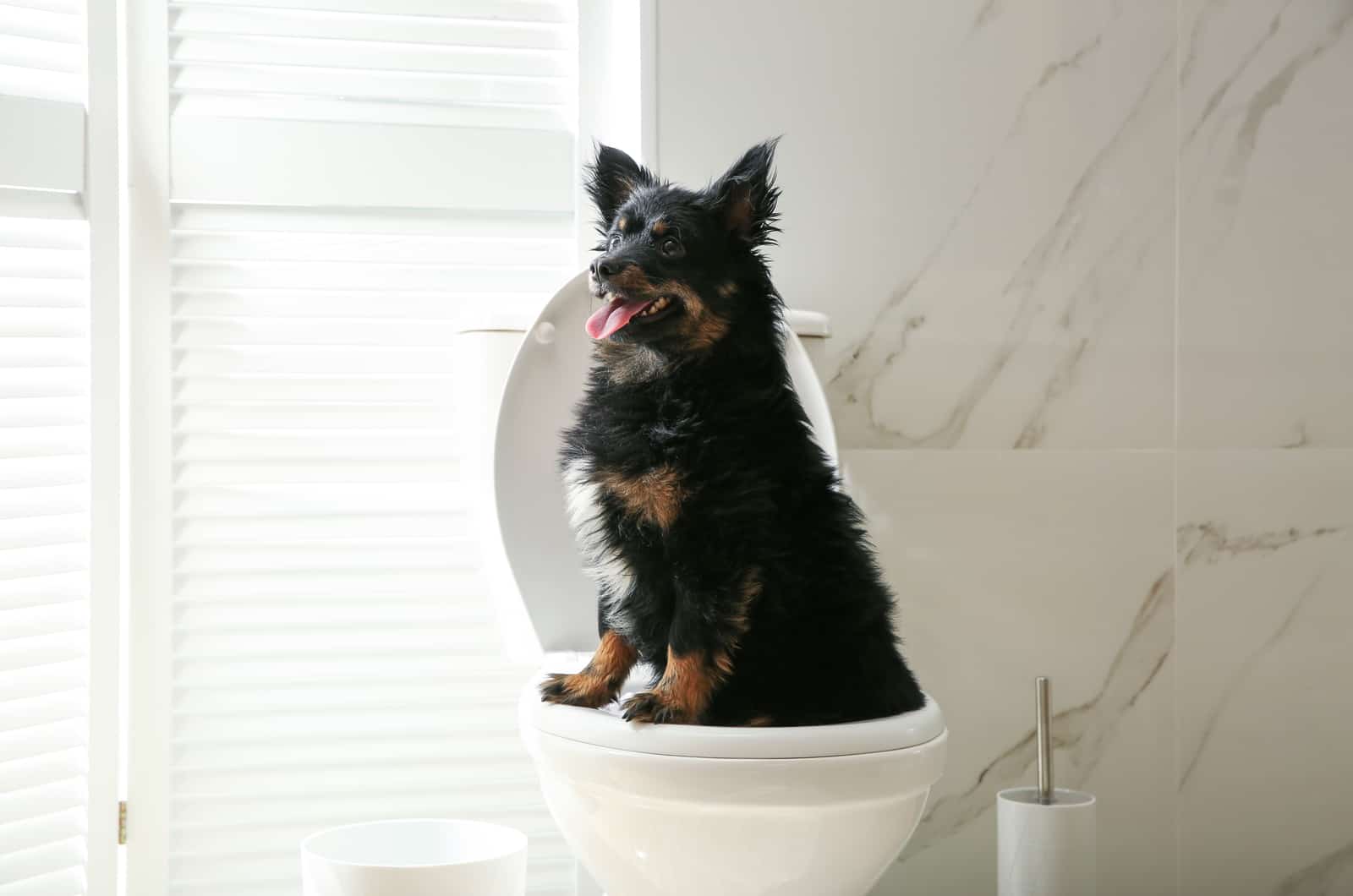Dog poop is one of the main outputs of problem expression. If dogs could talk, I believe we would appreciate them even more. They never seem to make a lot of hassle when something is wrong.
Viruses are nasty parasites that stick with you through the good and bad but mostly bad. Puppies are lovable four legged potatoes and seeing them suffer is a tough one.
Puppy or adult, the Parvo poop smell is a major tell that something is wrong. Come along on this journey of poop exploration and find out what this virus does, how to recognize it in your dog and ways to banish it.
Blame The Parvovirus For Parvo Poop Smells!
Canine Parvovirus is a virus that infects the gastrointestinal tract and causes the intestinal wall to slowly fall apart if not treated in time. Told you it was nasty business. If your dog’s poop smells odd, that could be the first sign of a parvo infection.
The distinctive smell (trust me, you will know if it happens) is extremely unsettling and can cause you to panic but it will probably be the first out of three major signs. Let us see if panicking is required or not and what the definitive signs of a parvovirus smelling poop are.
How Do I Know If My Dog Has Parvo?
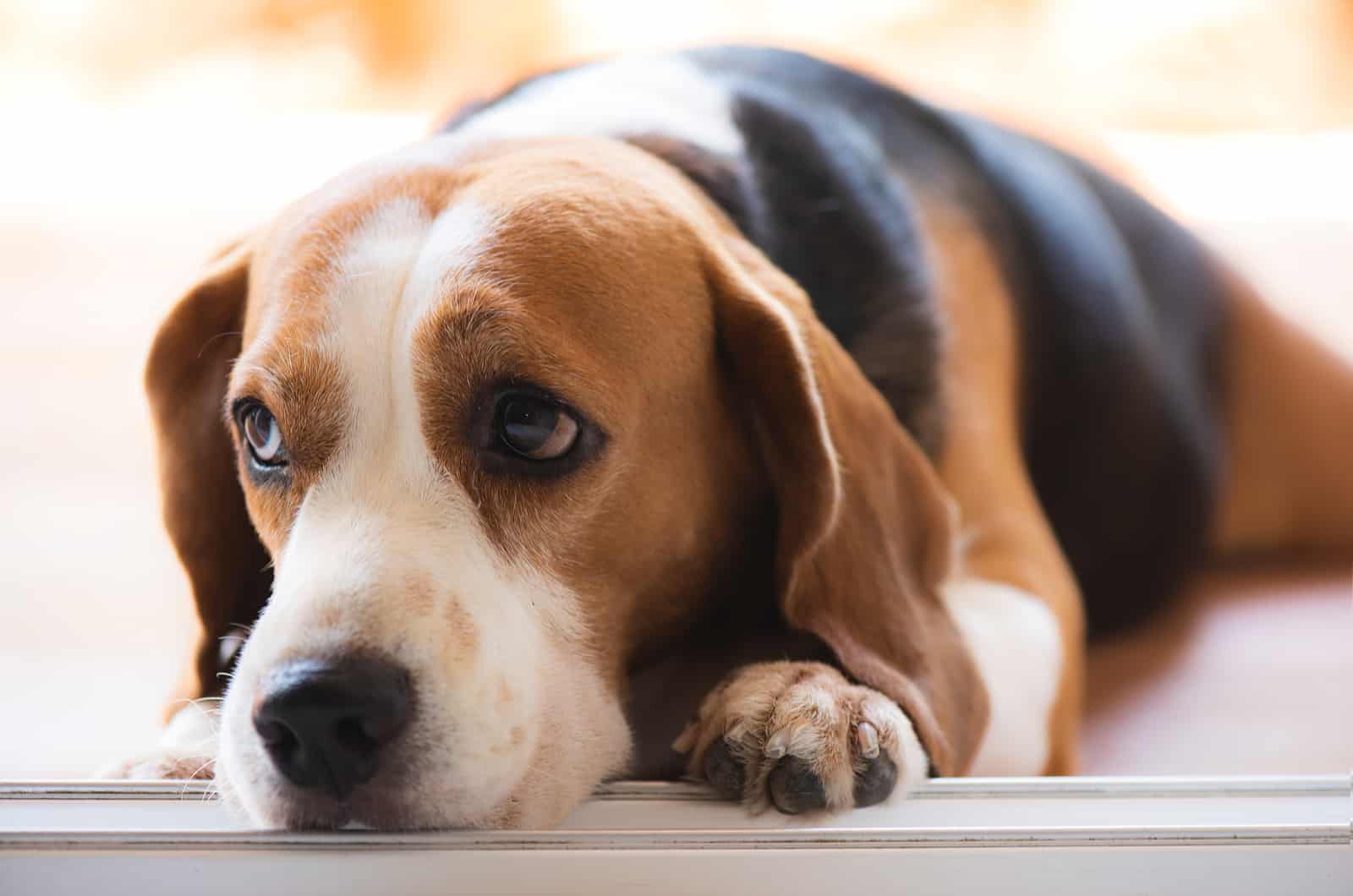
All three signs can, both individually and as a sum, point towards a parvo infection. A sick dog will have a certain progression of symptoms and with the virus’ aggressive multiplication rate, you will need to act quickly.
3 Signs Of Parvo That Will Ruin Your Appetite
Warning: If you are eating, this is where you put your food aside and forget about it until tomorrow. Things are about to get kind of gross and if you are an imaginative person there is no going around the cringing, tingling and other yuck sensations.
Does Parvo Poop Smell Like…
Yes it does. It smells like old, rotten sweets with a fragrance of metal. The components of the smell itself can vary. If there is blood and intestinal lining in the feces, then it will smell like your dog just pooped out a sheet of metal. The smell is caused by the iron present in the blood.
It will not be hard to smell that something is wrong with your puppy if it actually is parvovirus. The smell will, most likely, refuse to go away even after cleaning.
The smells are not exclusive to poop and vomit can smell very rancid too. Although the smell is not as pungent and strong you will definitely have no problem tracing where it came from. Imagine how your puppy feels that such stinky stuff is coming out of it.
Does Your Dog’s Parvo Poop Look Like This?
If you already felt the full blow of the smelly poop, the next step would be locating it. A puppy or adult dog will most often not make it to the yard or designated potty place so do not get angry at them – it was the parvovirus!
Once the deed has been discovered you will be presented with an unwelcome looking puddle of poop. Yes, it will be liquid and hard to clean. The consistency of the feces will be the second sign that will end or prolong the dilemma of what it is.
Keep in mind that there is a three to seven days period of incubation, and your dog will not become a poop jet immediately after contracting the virus.
Colorful Discontent
With parvovirus, the diarrhea will probably have clots or liquid blood in it or even pieces of the large intestine wall. This means the coloration of the poop will be quite visibly affected.
Needless to say, the dominant color will be a dark reddish brown or almost black. The black usually indicates the blood has been clotting for some time and dates to the first hours of the infection. The red, obviously, means the blood is recent and your dog might be actively bleeding.
It will be a disconcerting sight, and you should immediately call your doctor of veterinary medicine (DVM) or take your dog to an animal hospital if your dog’s poop matches the description.
More Symptoms Of Parvo In Your Dog
An infected dog will start showing symptoms within a week of contracting the virus. Before the onset of poop-related symptoms we just went through, your dog will have other, more behavioral, symptoms.
Note that some dogs can be asymptomatic and quickly succumb to the viral infection. That is why vomiting and bloody diarrhea are the most commonly talked about symptoms – they occur in the large majority of cases.
One particular disease that affects dogs is distemper. This is a systemic disease which means it attacks several organ systems at the same time. Symptoms can be fever, vomit, diarrhea, discharge from the eyes, coughing etc., and, with distemper, they occur all at the same time.
This makes distinguishing between distemper and parvo a little bit easier.
Loss Of Appetite
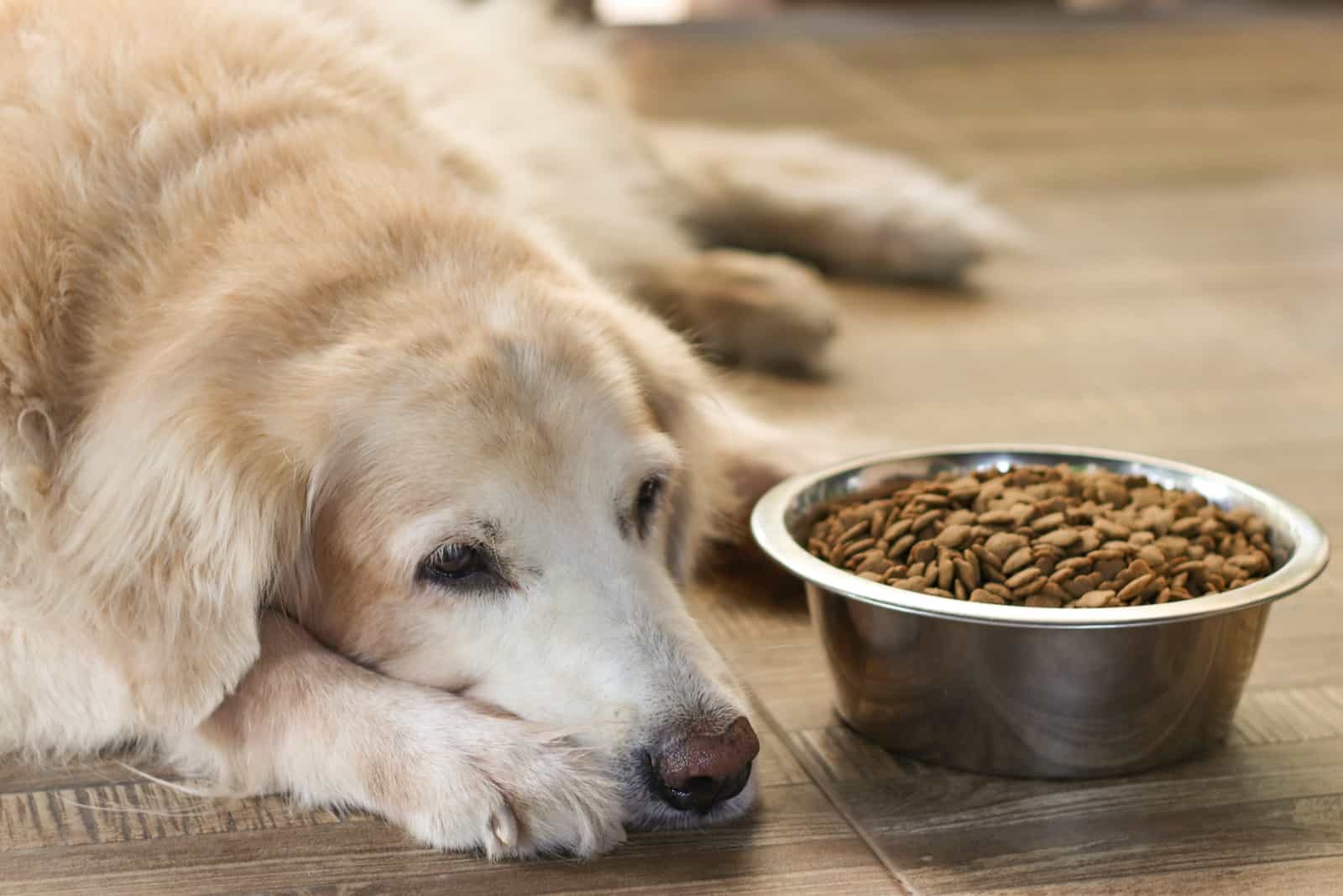
Dogs love their food. If you notice it refusing to eat you can know that something is wrong. However, there can be countless reasons other than parvo for a dog not wanting to eat.
Teeth problems such as gum disease are common in dogs and can cause pain while eating so your dog might refuse to eat.
If you renovated your house and things got way out of the dog’s comfort zone or you moved to a different place, then the dog might feel stressed out and refuse food.
Vaccination can also cause short-lived periods of food refusal in dogs. This does not happen too often but can be one of the causes of loss of appetite. If the symptom lasts for longer than a couple of days, you should definitely take your dog to the DVM.
Fever
As with most infections, fever in dogs is a clear sign of illness. Though not as common as some other symptoms, if you notice your dog is hot to the touch or is shivering on a warm day, take it to the veterinarian.
Lethargy And Depression
These symptoms share a lot in common with the loss of appetite, it being a symptom of these two, in return. Just like food, playtime is a sacred ritual that your dog loves. Refusing to participate in it can be a sign of parvovirus.
However, the causes for lethargy and depression can vary from environmental to character-related. If your four-legged companion suffered some trauma or stress, it could still be under the influence of the experience and, therefore, be lethargic or depressed.
Maybe it is simply stubborn or disappointed with what you have done to its toys. Regardless, if the dog does not liven up in a few days, you should look for immediate veterinary care.
Know Your Enemy: The Parvovirus
Now that you know what to look for and how to decide whether a call to the vet is warranted or not, we need to explain the actual workings of this highly contagious and potentially life-threatening virus.
What Does It Do?
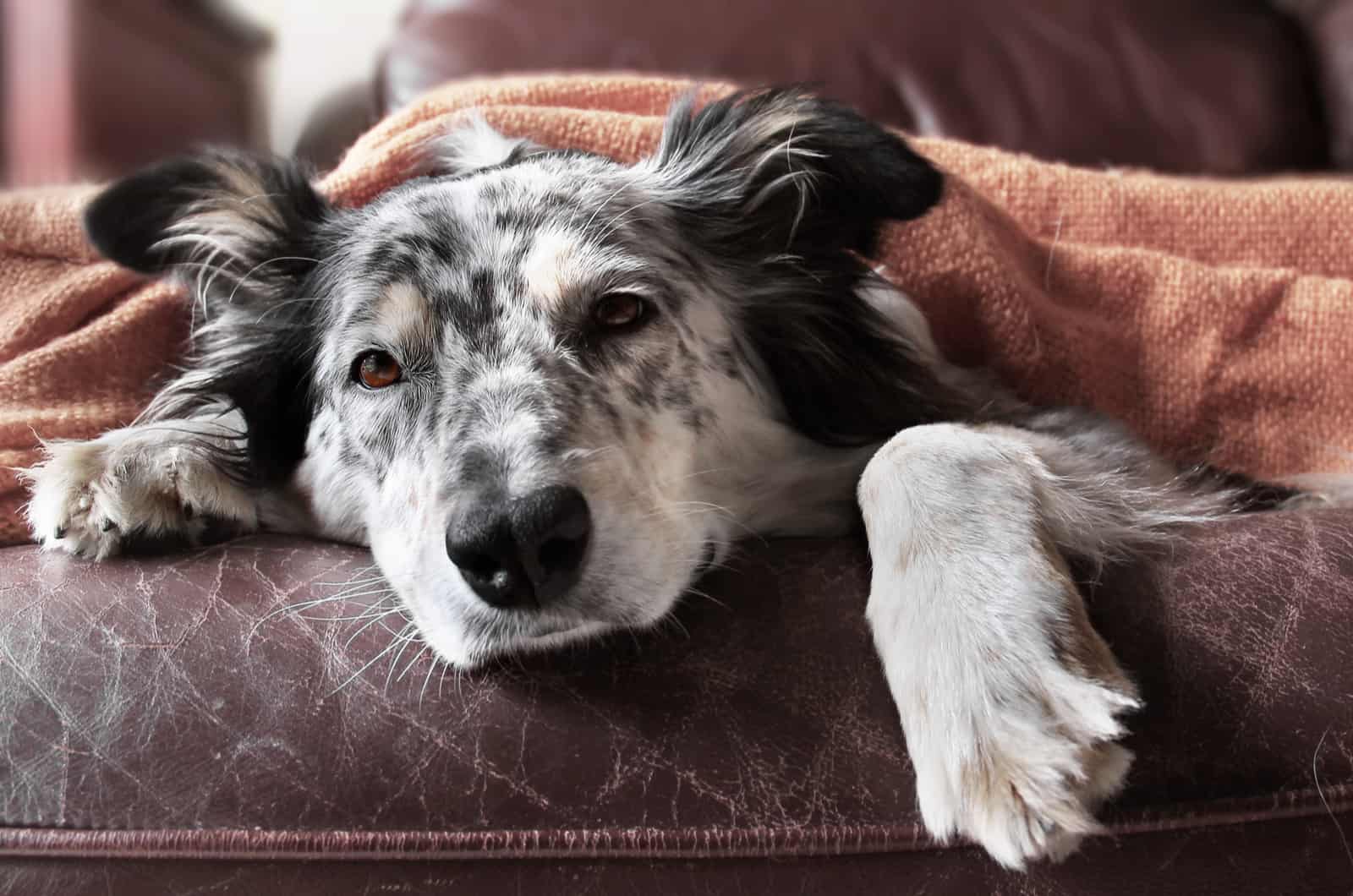
The Canine Parvo Virus (CPV) attacks cells in the dog’s body that replicate very quickly. To increase the chances of securing the host to itself it will go for the lymph nodes and tonsils first. These two are the main targets because lymphocyte cells are rapid dividers.
Hanging out for a couple days inside the lymphocyte cells allows it to get into the blood system undetected. The body does not recognize the virus inside the lymphocyte cells immediately because white cells have protective membranes and the immune system is compromised.
After hitchhiking through the body, it usually infects the bone marrow and walls of the small intestine. Once inside of these systems it can go on rampaging until arriving in the gastrointestinal tract.
Once that is done, it chomps away at the epithelial cells of the small intestines, preventing the normal absorption of nutrients and water retention properties.
As the epithelium is the uppermost layer of an organ, the virus keeps replacing dead epithelial cells with its own and then the dead tissue is excreted through the dog’s stool.
Is Parvo Contagious?
Canine Parvovirus is extremely contagious. Even though the incubation period lasts from three to seven days, the dog can transmit the virus onto other dogs.
Your young puppy or adult dog will be contagious for up to ten days after treatment ends. Unvaccinated dogs younger than 12 months are most susceptible to the parvo. Kennels are a major epicenter of parvo as puppies still do not have fully developed immune systems.
How is Parvo Transmitted?
Dog owners should be aware that the parvovirus does not require direct contact between two dogs. It is, by and large, transmitted through remains of feces. This is particularly frequent in kennels where the breeder does not practice proper hygiene or, simply, neglects the puppies.
Even though there are parvovirus vaccines, they are not a guarantee your dog will not get infected. Unvaccinated dogs with a very strong immune system can avoid getting infected but there is a lot of luck involved too.
Your dog might have some poop or vomit left on its face, paws or any part of the body. This means that, wherever it goes, the parvovirus follows. If you do not disinfect the area immediately, chances are, you will spread the virus around too.
You might think you cleaned the area where the diarrhea or vomiting occurred but the virus is incredibly resilient. It is resistant to many types of disinfectants, alcohol, detergent, heat, cold etc.
VCA Hospitals recommend a 1:30 bleach to water solution to kill off the virus. Let it soak the spot for a good 10 to 15 minutes. Good disinfection is important because the virus can live for months, on any surface the dog touches.
What Is The Cure For Parvo?
Similar to many viral infections, there is no cure. The only option a dog has is to weather the storm. There are, however, things that dramatically increase chances of survival. Your dog will need immediate hospitalization and iv fluids to replenish its electrolyte count.
With severe cases, full recovery is never a guarantee, especially if the damage done to the intestinal wall is too great to be repaired by the body’s regenerative capability.
If the puppy succeeds in getting to the fourth or fifth day, then the outcome is looking good. Dogs that received proper, and timely treatment have near an 80% chance to fully recover from parvo.
Learn more in our article on how I know if my puppy will survive parvo.
What Can You Do To Help A Dog With Parvo?
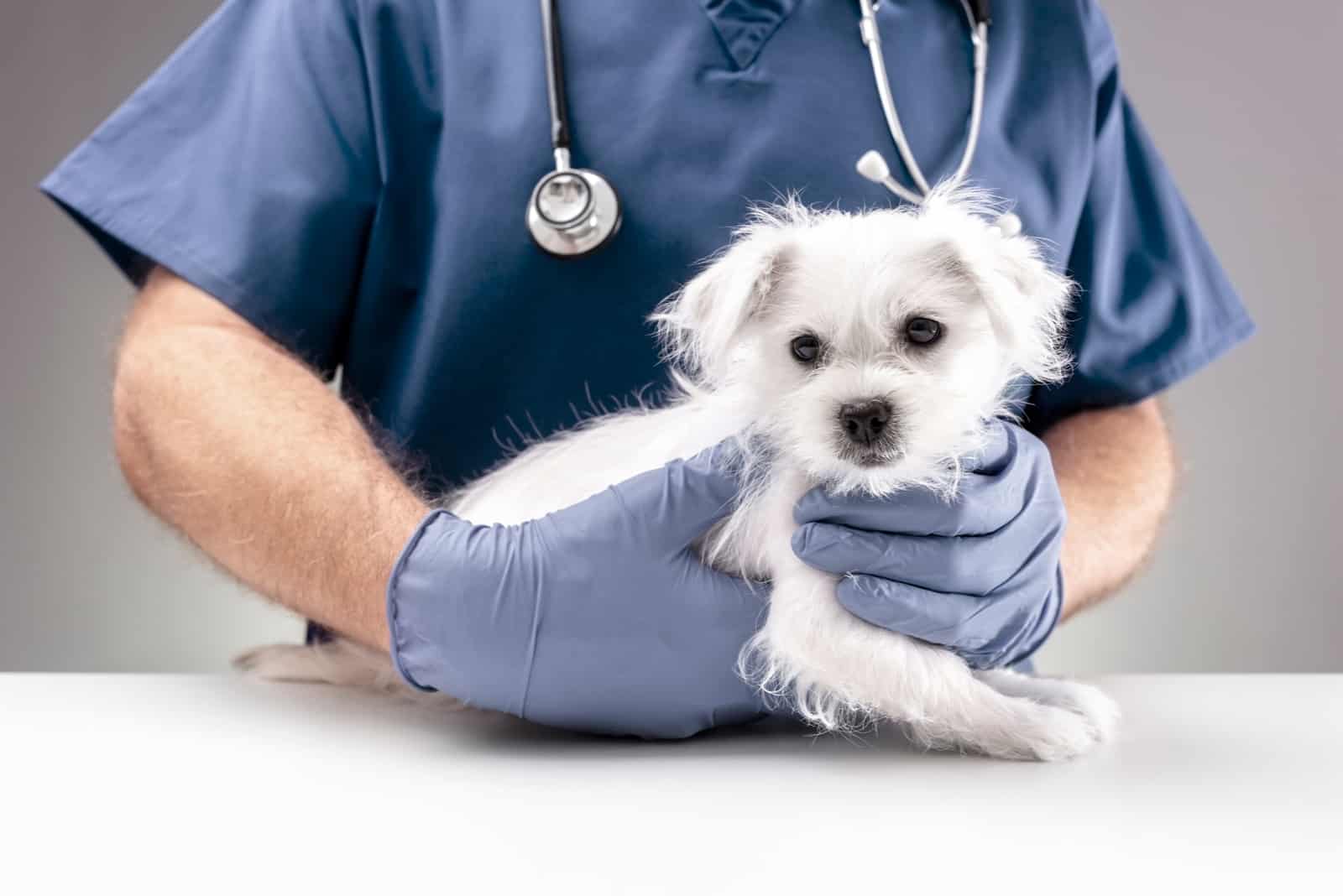
Pet owners themselves cannot do much except immediately call a DVM or take the dog to an animal hospital. Even the doctors cannot do much in this case, except provide supportive care and give a boost to the dog’s immune system.
In more severe cases, the DVM might do a blood transfusion to increase the blood cells count. If the intestinal bacteria manages to penetrate into the dog’s blood circulation, then antibiotics can be a good course of action.
They will prevent new bacterial infections from occurring while the dog is in a very immunologically fragile state. Stopping additional infections from occurring and suppressing vomiting while keeping the dog’s body on a transfusion, iv fluid and antibiotics is crucial for a full recovery.
If your dog is resilient and tough and does not display severe symptoms, your vet might keep it for a short while and then send it back for home treatment.
See Also: How To Cure Parvo Without A Vet: 6 Useful Advice
Prevention
Vaccination is key in preventing parvo in puppies and dogs under 12 months of age. Nowadays, vaccines are administered as a cocktail, targeting many diseases that share similar symptoms and invasive behavior.
Your 6 weeks old puppy will receive a combo of distemper, canine adenovirus, and parainfluenza vaccines every four weeks until 16 months old. Twelve months after that a booster shot is necessary, after which the dog gets one shot every three years.
What Is The Best Way To Get Rid Of The Smell Of Parvo Poop?
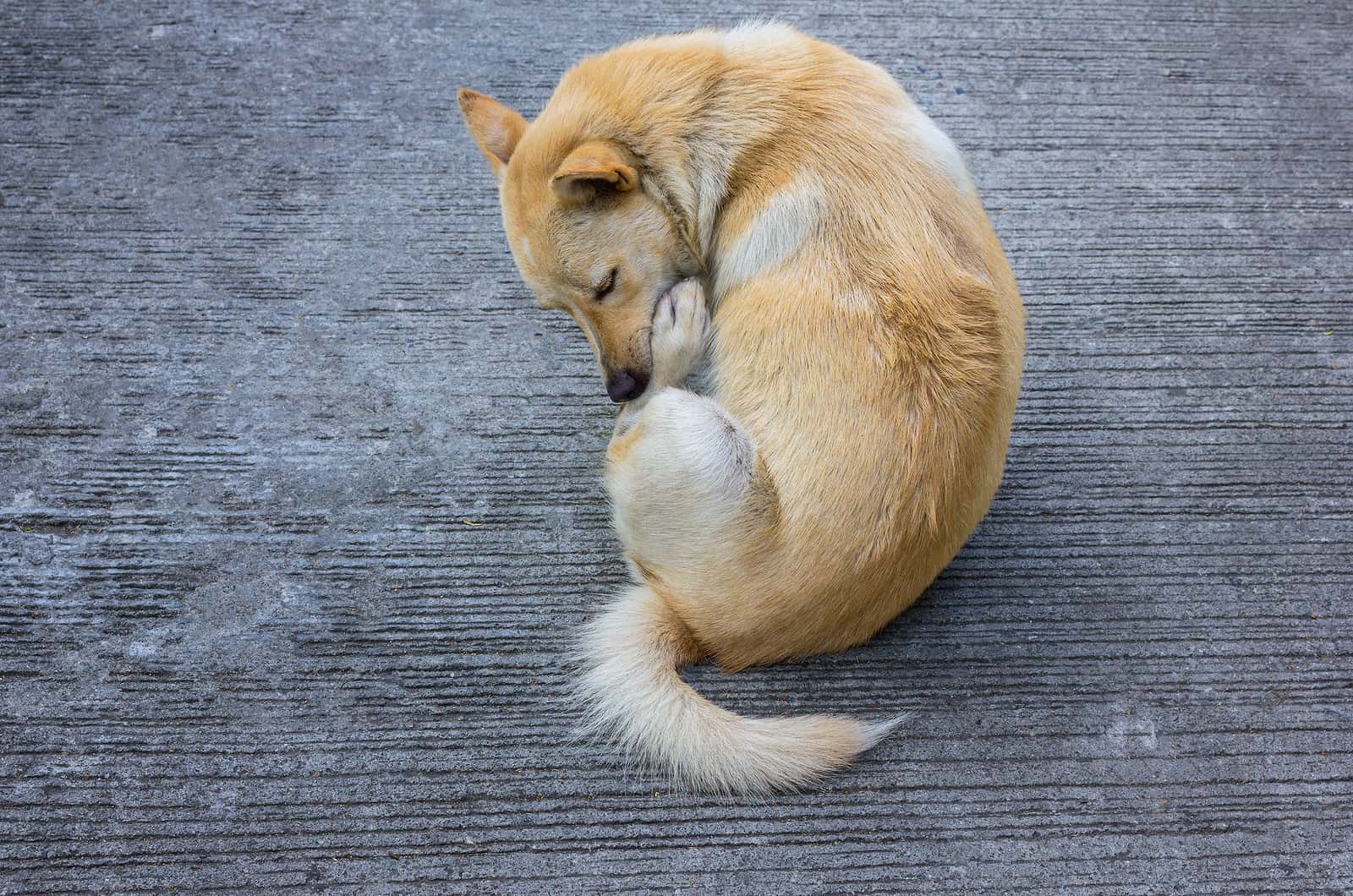
Well, I do not like to be the bearer of bad news but the smell will be there until it simply vanishes. You can get rid of the carpet or floor stains, water bowls, food bowls, anything that the dog touched during the period of infection but the smell needs time to go away.
Circulate the air through your home to push the smell out. You can use air fresheners, some decorative and scented candles or flowers and plants (if you are not allergic). It is really a matter of throwing everything at it and seeing what sticks.
If the poop and diarrhea splashing happened in the yard then you should not use bleach. Instead, there are industrial options suitable for usage on grass and plants.
That Was Intense
The read was worth it if it helped you realize your dog does not have parvovirus or if it helped you get him to the vet faster. I hope most of you fall into the first category.
The parvo poop smell might as well be the title of a horror movie. The disease is not something to joke about though – parvo in dogs is serious as is any infection that has the potential to end fatally.
If you suspect your dog has parvo, call the vet and you will immediately feel better. You can never be too careful.
Best of health to you and your canine companion!
Read Next:
• 8 Solutions And 10 Home Remedies For Smelly Dog
• 8 Helpful Tips For How To Stop Dog From Eating Poop
